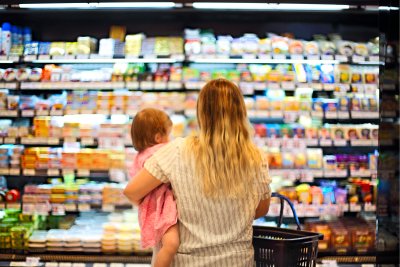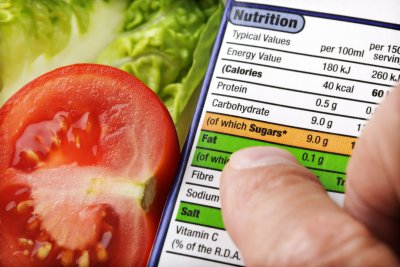 Billboard advertising a range of unhealthy products. Credit: Fran Bernhardt
Billboard advertising a range of unhealthy products. Credit: Fran Bernhardt

St Helens Borough Council introduces a healthier food advertising policy
St Helens Borough Council signed off on a robust policy to restrict unhealthy food and drinks adverts in their local area. The measures have been introduced to improve public health.
St Helens Borough Council is the twenty-second Council to bring in a Healthier Food Advertising Policy, after the Mayor of London, with support from Sustain, first brought in the policy across the Transport for London network in 2019. There is a growing number of councils within the North West of England that have successfully signed off on robust policies with Sustain's support including: Knowsley, Sefton, Cheshire West and Chester, Cheshire East and Liverpool Councils which have successfully signed off robust policies within the last two years.
Fran Bernhardt, Sustain's Commercial Determinants Coordinator said:
We’re delighted to have worked with St Helens Borough Council to prioritise children’s health by switching the spotlight away from unhealthy foods and drinks.
There are now 22 English Councils plus the Transport for London network which have introduced these robust policies designed by Sustain. This growing movement sends a message to the national Government to deliver on their pledges to restrict advertising on TV and online, and further focus on outdoor and radio to set the stage for healthier food across our communities.
This policy is a bold step in the right direction: prioritising not just health but equality and sustainability too. Evidence shows that putting the spotlight on unhealthy food increases the risk of food related ill health like diabetes, heart disease and tooth decay. Companies target low-income areas, resulting in people living there being more likely to experience poor health. Additionally, many of the restricted products are unsustainable containing climate damaging ingredients, such as sugar, cocoa and palm oil, as well as requiring lots of energy to process them.
We hope the terrific news from St Helens will inspire even more Councils to take this important step for their residents’ health.
Ruth du Plessis, St Helens Borough Council's Director of Public Health, said:
A balanced diet is key to good health, but it can be harder to make healthy choices when brands often focus their advertising on high fat, sugar or salt foods, particularly when we see them every day on our way to work or school.
"Our new policy urges advertisers to promote their healthier options instead. Similar policies adopted elsewhere have shown this can reduce calorie intake and improve public health.
Background
Evidence from the London School of Hygiene and Tropical Medicine’s evaluation of the Transport for London policy has shown that the restrictions led to a 20% reduction in sugary products, and a 1000 calorie decrease per week per household from unhealthy foods and drinks. Further modelling research from the University of Sheffield has estimated that across London, the restriction may lead to 95,000 fewer cases of obesity, 3000 fewer cases of diabetes and 2000 fewer cases of heart disease and could save the NHS £218 million over the lifetime of the current population.
Transport for London also announced that its advertising revenues have been unaffected by the restrictions since implementation in 2019. In the first year of the policy, revenues went up by £2.3 million, and in the second year (2020-21), despite financial losses due to Covid lockdowns at the time, the restrictions enabled the advertising figures to be maintained.
While local authorities are taking action, national government has stalled on anti-obesity measures. In 2020, the Government announced plans to restrict unhealthy food adverts, including a total online and 9pm TV watershed as a key part of the government's obesity strategy. These were due to be implemented in January 2023. However, in December 2022 the national Government delayed these to October 2025 - a delay that pushes them back three years after the date they originally committed to. This comes after the Obesity Health Alliance’s research found that 8 out of 10 adults support the Government restricting unhealthy food advertising to children on TV (79%) and online (81%).
If your local authority is interested in introducing a healthier food advertising policy, check out Sustain's toolkit for local authorities.
Commercial Determinants: Supporting policymakers and councils to introduce healthy food advertising policies.
Sustain
The Green House
244-254 Cambridge Heath Road
London E2 9DA
020 3559 6777
sustain@sustainweb.org
Sustain advocates food and agriculture policies and practices that enhance the health and welfare of people and animals, improve the working and living environment, promote equity and enrich society and culture.
© Sustain 2026
Registered charity (no. 1018643)
Data privacy & cookies
Icons by Icons8







